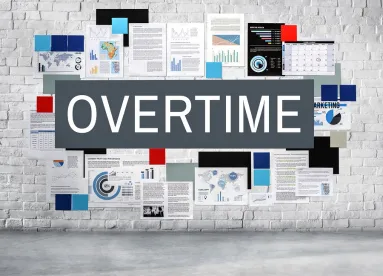In a long-awaited decision, the Trump Administration’s Department of Labor proposes to increase the salary threshold for white collar overtime exemptions to $35,308 per year.
Since 2004, the minimum salary level for overtime exemptions under the Fair Labor Standards Act (FLSA) for executive, administrative, and professional employees (“white collar” jobs) has been $23,660 per year. In 2016, in a controversial decision because of its impact on businesses, the Obama Administration enacted a rule that doubled the minimum salary level to $47,476. A federal court blocked the Obama-era rule from going into effect and shortly after the Trump Administration took office in 2017, it signaled that it would implement a more moderate increase to the salary requirement.
The proposed rule will officially rescind the Obama-era rule from 2016. The $35,308 salary level reflects a compromise between business and labor groups. The Department of Labor estimates that an additional one million workers will be eligible for overtime pay based on the increase in the minimum salary level.
The Department of Labor also proposes to increase the minimum salary level every four (4) years, but only after a notice-and-comment period. This reverses the Obama-era proposal to establish automatic, periodic increases.
The proposed rule provides some flexibility for employers to satisfy the salary requirement. Up to 10% of the minimum salary can be paid as nondiscretionary bonuses and incentive payments (including commissions), provided that the bonuses are paid annually or more frequently.
Finally, the overtime exemption for highly-compensated employees will rise from its current level of $100,000 to $147,414 per year.
Following a 60day public comment period, the Department of Labor intends to publish the final rule so it can go into effect in January 2020.
The business community is generally receptive to this increase in the salary level because it will have a lesser impact on business costs than the Obama-era rule. Some business groups remain disappointed that the Trump Administration did not update and streamline the “duties tests” for overtime exemptions to eliminate needless litigation. Worker advocacy groups who remain disappointed about the salary level being lower than the Obama-era 2016 rule are likely to challenge any final rule issued by the Department of Labor.




 />i
/>i

